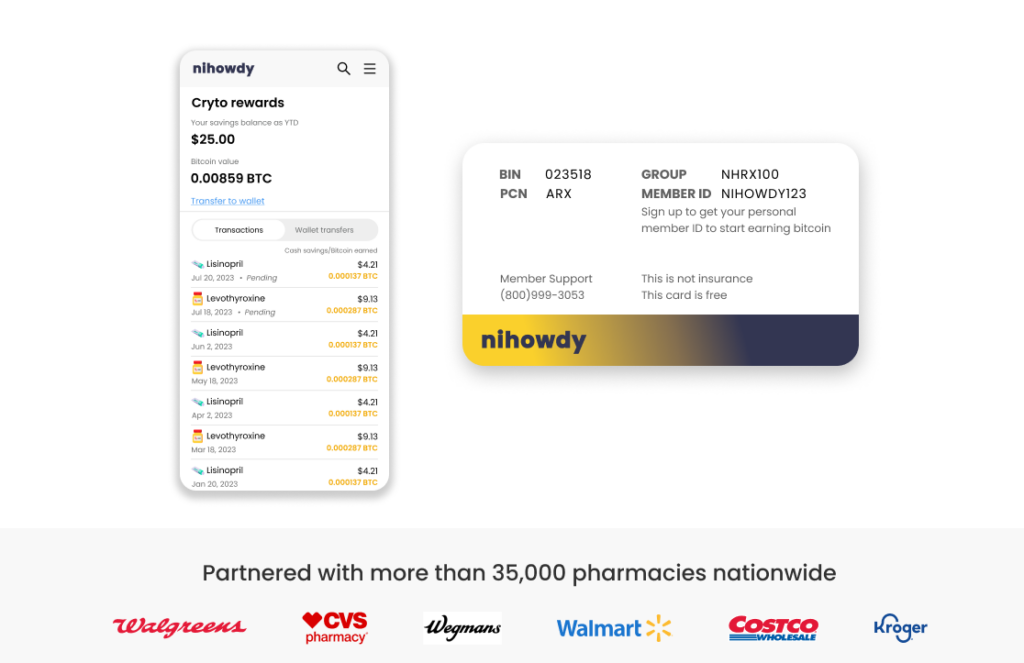Top Medicine for Sore Throat Relief: A Comprehensive Guide


A sore throat can be a real pain, and you’re probably looking for the best medicine to alleviate it quickly. This article simplifies your options, from over-the-counter reliable drugs to home remedies and signs indicating a doctor’s visit. Expect clear, straightforward advice to ease discomfort—one remedy at a time. Identifying whether a viral or bacterial infection causes a sore throat is crucial for determining the appropriate treatment.
Key Takeaways
Most sore throats are viral and resemble cold symptoms, but bacterial infections like strep throat can cause severe pain without a cough and need antibiotics for treatment.
OTC options like NSAIDs and throat lozenges offer relief by reducing inflammation and numbing pain, while prescription antibiotics are necessary for bacterial infections.
Prevention and home remedies, such as herbal teas and saltwater gargles, are essential for management and prevention, and discount cards like NiHowdy can save prescriptions.
A sore throat can be characterized by a raspy feeling, dryness, and sharp pain when swallowing or talking.
Identifying Your Sore Throat: Viral or Bacterial?

Not every sore throat is the same. Some are due to a viral infection, like a common cold or influenza, while others result from bacterial invasion. Most sore throats stem from viruses associated with illnesses such as the flu or colds. They are identifying whether it’s viral or bacterial hinges on recognizing distinct symptoms.
Viral infections causing throat pain typically share symptoms with the common cold, including coughing, a runny nose, and redness in the throat area. In contrast, bacterial infections such as strep throat tend to cause intense throat pain accompanied by nausea and vomiting. Sometimes, they even lead to stomach discomfort, but notably without any coughing involved. Streptococcus pyogenes is an illness triggered by Streptococcus pyogenes bacteria. Reaching for antibiotics prematurely isn’t wise since these medications only combat bacterial infections and are futile against those caused by viruses affecting the throat area. Bacterial infections like strep throat require antibiotics, and it is crucial to complete the entire course to treat the bacterial infection and prevent potential complications effectively.
The Telltale Signs of Strep Throat
Suffering from a sore throat can be quite distressing, and when it comes to strep throat — though not as frequent as viral sore throats — the level of discomfort is often high enough to prompt immediate medical attention. To discern whether your throat pain could be strep-related, watch for some distinctive indications before heading out for a professional diagnosis.
Observation may reveal small red dots on the top part of your mouth. These are referred to as petechiae and might indicate that you’re dealing with more than an ordinary sore throat. If experiencing severe pain in your throat without mentionable insights about other symptoms like fever or swollen lymph nodes within this context, consulting with healthcare experts should be prioritized to confirm if a strep test is warranted.
When It’s Likely a Virus
If you exhibit symptoms such as coughing, a runny nose, and swelling of your throat with redness but no presence of white specks, it’s probable that you have a viral sore throat. This kind is the most prevalent and usually results from viruses associated with influenza or the common cold.
These contagious viral infections are transmitted chiefly through droplets in the air released by sneezes or coughs. Though they are not as intense as strep throat, they can still lead to considerable soreness in your throat. Fortunately, multiple treatments are designed to alleviate discomfort in your throat and reduce the pain you’re experiencing.
Over-the-Counter Options for Soothing Throat Pain

Many people resort to readily available over-the-counter remedies to relieve pain when experiencing a sore throat. Options include various throat lozenges, sprays, and pain-relieving tablets, all crafted for quick relief.
Commonly used over-the-counter medications like non-steroidal anti-inflammatory drugs (NSAIDs), such as acetaminophen, ibuprofen, and naproxen, effectively reduce the pain and swelling caused by a sore throat. Topical anesthetics with active ingredients, including benzocaine, menthol, or phenol, may also temporarily relieve the affected area within the throat.
NSAIDs: Beyond Just Pain Relief
Nonsteroidal anti-inflammatory drugs, commonly known as NSAIDs, are not limited to merely alleviating pain. These medications also mitigate inflammation and swelling, greatly aiding the comfort of a sore throat.
Ibuprofen and naproxen stand out among common NSAIDs for their proficiency in diminishing discomfort and inflammation within the throat area. They tackle the root cause of pain, which contributes to prompt symptom relief and promotes quicker healing.
Lozenges and Sprays: Quick Fixes for Most Sore Throats
Throat lozenges and sprays are favored options for individuals seeking swift relief from a sore throat. These remedies provide immediate comfort by forming a defensive coating on the mucous membrane within the throat, aiding in diminishing pain and inflammation.
Many of these treatments incorporate numbing agents alongside other components to significantly lessen sore throat discomfort. Some are even infused with honey, an organic substance recognized to match specific over-the-counter cough medicines in their effectiveness at easing both coughs and symptoms associated with a sore throat.
Prescription Medications: When to See a Doctor
Effective home remedies and over-the-counter options are available for most sore throats. There are instances when consulting with a physician is necessary. Medical attention should be sought if you experience any of the following along with your sore throat:
Trouble breathing
Difficulty swallowing
Elevated body temperature
Persistent hoarseness lasting beyond one week
Presence of blood within saliva or phlegm
Emergence of a skin rash
Symptoms indicative of dehydration
Should your condition deteriorate, it’s essential to consult with a healthcare professional who can offer specific advice or medication as required. For example, antibiotics might be recommended in strep throat scenarios to decrease potential complication risks, but only after performing tests such as rapid antigen detection test (RADT) or securing results from a throat culture to confirm diagnosis before treatment is prescribed.
Antibiotics for Bacterial Infections
Antibiotics revolutionized the treatment of bacterial sore throats. Specifically, antibiotics target sore throats resulting from Group A beta-hemolytic streptococci (GABHS) infections.
Oral penicillin V is highly regarded for treating GABHS-induced pharyngitis due to its efficacy, cost-effectiveness, and specificity. Alternatively, amoxicillin can be administered, as it offers a more pleasant taste and convenient once-daily dosing that may appeal especially to children. In cases where patients have a penicillin allergy, first-generation cephalosporins may be prescribed. For those with severe allergies, macrolides or clindamycin are viable substitutes.
Individuals on these medications must adhere strictly to their complete antibiotic regimen to fully clear the infection and minimize the risk of developing antibiotic resistance.
Additional Treatments for Complicated Cases
In certain circumstances, a sore throat can escalate to more severe conditions like scarlet or rheumatic fever. When this happens, patients might need additional treatment options, such as anti-inflammatory drugs or corticosteroids.
For instance, managing rheumatic fever typically involves administering antibiotics such as penicillin alongside anti-inflammatory medications — aspirin or naproxen may be used for this purpose. Corticosteroids might also form part of the treatment plan in more acute instances. If recurrent strep throat does not respond to penicillin therapy effectively, medical practitioners may opt for alternative antibiotics, including clindamycin or amoxicillin/clavulanic acid, to achieve better outcomes.
Should a patient with prior rheumatic fever develop heart inflammation complications as well, they could require an extended course of antibiotic therapy, possibly lasting over ten years, to prevent Episodes of the condition.
Home Remedies to Soothe a Sore Throat

Numerous sore throat remedies, including home treatments, can help moisten the throat and alleviate discomfort. Prescription medications and over-the-counter solutions are not the sole means of relieving sore throat. Numerous home remedies can effectively alleviate a painful throat.
Natural compounds with anti-inflammatory properties, found in warm herbal teas such as chamomile, turmeric, and green tea, may provide comfort for sore throat patients. Ingredients like peppermint—which boasts menthol—along with fenugreek, marshmallow root, and slippery elm have been known to reduce the presence of bacteria while soothing irritation and easing throat pain.
Ensure that humidity levels remain optimal, and wear a mask in specific settings to lessen the discomfort associated with dryness or airborne particles irritating the throat.
Warm Liquids and Herbal Teas
Warm beverages can soothe throat discomfort. They help alleviate irritation and maintain moisture in the throat, providing relief and comfort.
Specifically, caffeine-free herbal teas mixed with honey may offer notable benefits when tackling sore throat symptoms.
Deliver a calming effect
Mitigate the discomfort associated with sore throats
Contribute additional antioxidants
Enhance taste satisfaction
Diminish mucus buildup and ease sore throat indicators through their antimicrobial and anti-inflammatory effects.
Salt Water Gargles and Honey
Gargling with warm salt water is a powerful home treatment for soothing sore throats. The warmth of the water combined with the salt helps dissolve mucus, kill off bacteria, and relieve throat discomfort.
For ages, honey has been an organic remedy for numerous health issues, particularly sore throats. Whether consumed directly or mixed into warm tea or water, it offers a naturally sweet method to alleviate the pain associated with a sore throat.
Lifestyle Adjustments for Sore Throat Prevention
Indeed, it’s often said that an ounce of prevention is worth a pound of cure. With that in mind, let’s consider some lifestyle changes that might help prevent future sore throats.
One can reduce the frequency of sore throats by pinpointing and steering clear of allergens or irritants that trigger the condition. Engaging in behaviors such as shunning smoke inhalation, practicing diligent hand hygiene, and ensuring sufficient sleep are instrumental steps toward forestalling infections that cause a sore throat.
Reducing Exposure to Irritants
To prevent sore throats, it’s important to limit contact with irritants. These can range from environmental pollutants and smoke to specific types of food that may lead to discomfort.
Avoiding pollution or inhaling smoke significantly lowers the risk of developing a sore throat by decreasing potential irritation. Cutting down on spicy foods helps safeguard your throat against additional irritation.
Boosting the Immune System
Strengthening your immune system is critical to preventing sore throats. When your immunity is strong, it’s better equipped to ward off viral and bacterial infections that often lead to inflammation in the throat.
Ensuring you eat foods with vitamins and minerals can empower your immune defenses against infectious agents. Noteworthy sources rich in these vital nutrients for bolstering immunity include:
Citrus fruits
Spinach
Red peppers
Broccoli
Shellfish
Yogurt replete with active cultures
Almonds
Substances found in chamomile tea and garlic may provide an advantage by fighting off infections and supporting overall immune function.
Advanced Solutions: NiHowdy’s Prescription Discount Card
We have explored various conventional methods for alleviating a sore throat, yet you may not be aware of an innovative option—NiHowdy’s prescription discount card. This card provides instant discounts on prescriptions and compensates you with Bitcoin each time you refill your prescription.
Leveraging the benefits of the NiHowdy card yields immediate cost reductions and future financial advantages through Bitcoin rewards. It’s a novel fusion of managing healthcare expenses while enhancing fiscal stability, presenting an unparalleled approach to dealing with costs associated with soothing your throat discomfort.
Maximizing Savings on Prescriptions
NiHowdy’s prescription discount card, accessible to everyone regardless of insurance status, provides an easy method to secure medication discounts. Applying NiHowdy’s discount card when buying medicine for your sore throat could help reduce costs and simplify the financial aspect of your healthcare.
Using the NiHowdy card, you can compare drug prices at various pharmacies to find the best options. Beyond just saving on prescriptions, NiHowdy’s discount program also presents a perk: users can receive up to 3% back in Bitcoin with every purchase of prescribed medications.
The Long-Term Value of Rewards
Not only does NiHowdy’s prescription discount card offer instant cost reductions, but it also provides the chance for financial growth due to the possibility of Bitcoin rewards increasing in value, thereby aiding in your monetary security.
Individuals using prescription discount cards like NiHowdy’s with Bitcoin incentives can immediately reduce healthcare expenses and potentially gain long-term fiscal benefits. The rate at which the returns from NiHowdy’s card are climbing suggests even more significant advantages.
Consequently, over time, the gains yielded by using NiHowdy’s prescription discount card could become a safeguard against escalating medical prices or other significant future costs.
Summary
We’ve provided a detailed exploration of how to determine the cause of your sore throat and the myriad treatment methods available, encompassing over-the-counter solutions, prescription medications, home remedies, and lifestyle changes for effective sore throat relief. We’ve presented NiHowdy’s innovative prescription discount card that reduces medication costs and offers Bitcoin rewards. Keep in mind that a sore throat isn’t merely an annoyance. It’s a chance to assert authority over your well-being. Therefore, when you experience that scratchy feeling in your throat again, you’ll be well-equipped with knowledge on what actions to take.
Frequently Asked Questions
Which medicine is best for a sore throat?
Pain and fever stemming from a sore throat due to a viral infection can be alleviated using mild pain relievers such as acetaminophen, as antibiotics do not work against viruses. However, if the sore throat is caused by a bacterial infection, such as strep throat, antibiotics are necessary to treat the bacterial infection. It is essential to complete the entire course of antibiotics to treat the bacterial infection and prevent potential complications effectively.
How can I tell if my sore throat is viral or bacterial?
It is possible to discern whether a sore throat is caused by a viral infection or bacterial causes based on the symptoms. Viral sore throats often present with symptoms such as coughing, swelling in the throat, and nasal discharge. Conversely, bacterial infections such as strep throat typically induce intense throat pain, nausea, vomiting, and stomach discomfort but do not usually include a cough among their symptoms.
What are some over-the-counter options for soothing throat pain?
To alleviate throat pain and inflammation, you might consider taking nonsteroidal anti-inflammatory drugs (NSAIDs) like acetaminophen, ibuprofen, or naproxen. To complement these, throat lozenges or sprays could offer a transient numbing sensation to ease throat discomfort.
These methods can be effective in providing relief from throat pain.
When should I see a doctor for a sore throat?
Suppose you have a sore throat accompanied by trouble breathing or swallowing, an elevated temperature, a voice that has been hoarse for over seven days, blood in your saliva or phlegm, a skin rash, or indications that you might be dehydrated. In that case, these signs indicate the need to consult a healthcare professional.
Medical attention should be sought if these symptoms present themselves.
What are some home remedies for a sore throat?
Drinking warm herbal teas, utilizing natural ingredients such as peppermint, fenugreek, and marshmallow root, gargling with warm salt water, and consuming honey are potent home remedies that can significantly reduce the discomfort and irritation of a sore throat. These methods are known to soothe throat pain effectively.


